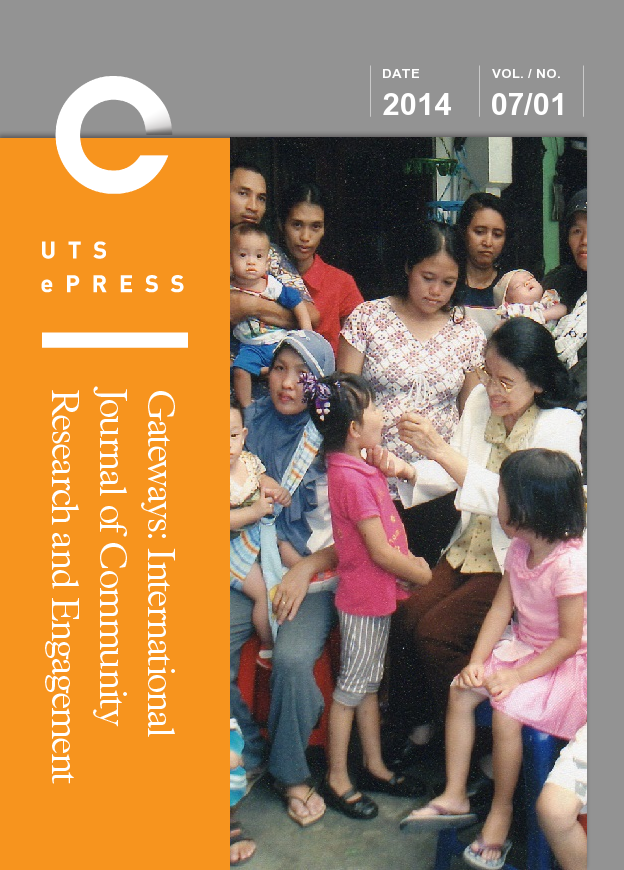The Farm to Fork project: Community-engaged scholarship from community partners' perspective
Main Article Content
Abstract
Higher education institutions have traditionally largely ignored their role in identifying and addressing issues that their communities face. In an attempt to tackle this situation, models such as community-engaged scholarship (CES) have been developed and used to illustrate the active roles higher education institutions can play in sustainable social change. CES is guided by principles of mutually beneficial collaboration and reciprocity to address issues faced by the community. CES can guide the development of an in-depth understanding of social issues and can promote long-term and sustainable solutions. CES literature focuses largely on the impacts and benefits to students and faculty, but often ignores assessment of CES projects based on their impact on community partners and the community overall.
This article illustrates the experiences of community partners in a Farm To Fork project and the impact of the project on community partners and the community at large. Developed at the University of Guelph in Ontario, Canada, the Farm To Fork project is helping increase the quantity and quality of food donated to emergency food providers, such as food banks and food pantries, via the use of online tools. Based on a survey questionnaire, the experiences of community partners are summarised under four categories: mutual benefit, resources, networking and collaborations, and raising awareness and addressing social issues. The results demonstrate that community partners greatly appreciate the effort and dedication of students and faculty. Through the project, community partners gained experience and access to university resources and formed networks with academics as well as other community organisations that will benefit them in the future. In addition, the Farm To Fork project helped to raise awareness about food insecurity, not only among students and faculty working on the project, but also in the Guelph-Wellington area.
Keywords: community-engaged scholarship, food insecurity, community impacts, Farm To Fork, Guelph-Wellington
Article Details
Issue
Section
Authors who submit articles to this journal from 31st March 2014 for publication, agree to the following terms:
a) Authors retain copyright and grant the journal right of first publication with the work simultaneously licensed under a Creative Commons Attribution License that allows others to share and adapt the work with an acknowledgement of the work's authorship and initial publication in this journal.
b) Authors are able to enter into separate, additional contractual arrangements for the non-exclusive distribution of the journal's published version of the work (e.g., post it to an institutional repository or publish it in a book), with an acknowledgement of its initial publication in this journal.
c) Authors are permitted and encouraged to post their work online (e.g., in institutional repositories or on their website) prior to and during the submission process, as it can lead to productive exchanges, as well as earlier and greater citation of published work (See The Open Access Citation Advantage Service). Where authors include such a work in an institutional repository or on their website (ie. a copy of a work which has been published in a UTS ePRESS journal, or a pre-print or post-print version of that work), we request that they include a statement that acknowledges the UTS ePRESS publication including the name of the journal, the volume number and a web-link to the journal item.
d) Authors should be aware that the Creative Commons Attribution (CC-BY) License permits readers to share (copy and redistribute the work in any medium or format) and adapt (remix, transform, and build upon the work) for any purpose, even commercially, provided they also give appropriate credit to the work, provide a link to the license, and indicate if changes were made. They may do these things in any reasonable manner, but not in any way that suggests you or your publisher endorses their use.
For Volume 6 (2013) and before, the following copyright applied:
Articles published by UTSePress are protected by copyright which is retained by the authors who assert their moral rights. Authors control translation and reproduction rights to their works published by UTSePress. UTSePress publications are copyright and all rights are reserved worldwide. Downloads of specific portions of them are permitted for personal use only, not for commercial use or resale. Permissions to reprint or use any materials should be directed to UTSePress.
